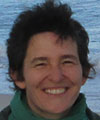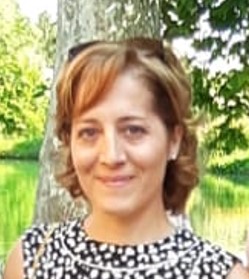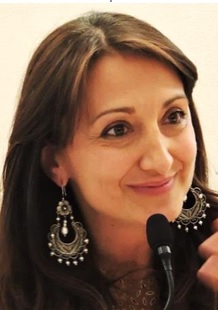Studying at the University of Verona
Here you can find information on the organisational aspects of the Programme, lecture timetables, learning activities and useful contact details for your time at the University, from enrolment to graduation.
Academic calendar
The academic calendar shows the deadlines and scheduled events that are relevant to students, teaching and technical-administrative staff of the University. Public holidays and University closures are also indicated. The academic year normally begins on 1 October each year and ends on 30 September of the following year.
Course calendar
The Academic Calendar sets out the degree programme lecture and exam timetables, as well as the relevant university closure dates..
| Period | From | To |
|---|---|---|
| Sem. 1A | Sep 25, 2023 | Nov 4, 2023 |
| Sem. 1B | Nov 13, 2023 | Dec 22, 2023 |
| Sem. 2A | Feb 19, 2024 | Mar 29, 2024 |
| Sem. 2B | Apr 9, 2024 | May 31, 2024 |
| Session | From | To |
|---|---|---|
| Sessione d'esame invernale | Jan 8, 2024 | Feb 17, 2024 |
| Sessione d'esame estiva | Jun 3, 2024 | Jul 27, 2024 |
| Sessione d'esame autunnale | Aug 26, 2024 | Sep 21, 2024 |
| Session | From | To |
|---|---|---|
| Sessione estiva | Jul 8, 2024 | Jul 13, 2024 |
| Sessione autunnale | Nov 4, 2024 | Nov 9, 2024 |
| Period | From | To |
|---|---|---|
| Festa di Ognissanti | Nov 1, 2023 | Nov 1, 2023 |
| Festa dell'Immacolata | Dec 8, 2023 | Dec 8, 2023 |
| Vacanze di Natale | Dec 23, 2023 | Jan 6, 2024 |
| Vacanze di Pasqua | Mar 30, 2024 | Apr 1, 2024 |
| Festa della Liberazione | Apr 25, 2024 | Apr 25, 2024 |
| Festa del Lavoro | May 1, 2024 | May 1, 2024 |
| Festa del Patrono S. Zeno | May 21, 2024 | May 21, 2024 |
| Festa della Repubblica | Jun 2, 2024 | Jun 2, 2024 |
| Vacanze estive | Aug 12, 2024 | Aug 17, 2024 |
Exam calendar
Exam dates and rounds are managed by the relevant Humanistic Studies Teaching and Student Services Unit.
To view all the exam sessions available, please use the Exam dashboard on ESSE3.
If you forgot your login details or have problems logging in, please contact the relevant IT HelpDesk, or check the login details recovery web page.
Should you have any doubts or questions, please check the Enrollment FAQs
Academic staff
 alberto.mattei@univr.it
alberto.mattei@univr.it
Study Plan
The Study Plan includes all modules, teaching and learning activities that each student will need to undertake during their time at the University.
Please select your Study Plan based on your enrollment year.
1° Year
| Modules | Credits | TAF | SSD |
|---|
2° Year It will be activated in the A.Y. 2024/2025
| Modules | Credits | TAF | SSD |
|---|
3° Year It will be activated in the A.Y. 2025/2026
| Modules | Credits | TAF | SSD |
|---|
| Modules | Credits | TAF | SSD |
|---|
| Modules | Credits | TAF | SSD |
|---|
| Modules | Credits | TAF | SSD |
|---|
| Modules | Credits | TAF | SSD |
|---|
Legend | Type of training activity (TTA)
TAF (Type of Educational Activity) All courses and activities are classified into different types of educational activities, indicated by a letter.
General Psychology (2023/2024)
Teaching code
4S00798
Teacher
Coordinator
Credits
9
Language
Italian
Scientific Disciplinary Sector (SSD)
M-PSI/01 - GENERAL PSYCHOLOGY
Period
Sem. 1A, Sem. 1B
Courses Single
Authorized
Learning objectives
GENERAL LEARNING OBJECTIVES. *To know and understand the psychological theories which describe and explain the processes underlying individuals and groups' behaviours, and the processes of adjustment to the material and social environment, for example the perceptual, cognitive, communicative-linguistic, social-relational, affective-emotional, and learning processes. *To apply the psychological theories to the functioning of individuals, groups, and organisation in order to observe and analyse behaviours, and in particular phenomena concerning learning and personal and social changes.
SPECIFIC LEARNING OBJECTIVES. *To know the historical path that psychology has followed to identify itself as an experimental discipline, delving into the most important themes involved in cognitive processes. The first of the aspects studied will be methodological and epistemological, to understand the relationship between psychology as an experimental discipline and the other humanistic disciplines that contribute to the study of human thought. *To delve into classic themes of psychology such as the study of perceptual experience, psychophysics, theories, models and research on consciousness, attention, memory, thought, intelligence, learning, motivation, emotions, communication. *To understand topics such as the nature and treatment of mental disorders, personality development across the lifespan, and behavioural biology, that contribute to the organisation of human cognitive architecture.
Prerequisites and basic notions
No prior knowledge is required
Program
The Science of Psychology
- The Nature of Psychology
- The Field of Psychology and its Levels of Analysis
- Psychology Today
Studying Behavior Scientifically
- Scientific Principles in Psychology
- Ethical Principles in Research
- Research Methods
- Threats to Research Validity
- Analyzing and Interpreting Data
- Critical Thinking in Science and Everyday Life
Genes, Environment, and Behavior
- Effects of Genetics on Behavior
- Adapting to the Environment: The Role of Learning
- Behavioral Genetics, Intelligence, and Personality
- Gene-Environment Interactions
- Genetic Manipulation
- Evolution and Behavior: Legacies of the Distant Past
Brain and Behavior
- Neurons
- How Neurons Communicate: Synaptic Transmission
- The Nervous System
- The Hierarchical Brain: Structures and Behavioral Functions
- Hemispheric Lateralization: The Right Hemisphere and the Left Hemisphere
- Brain Plasticity: The Role of Experience and Functional Recovery
- The Nervous System Interacts with the Endocrine and Immune Systems
Sensation and Perception
- Sensory Processes
- Sensory Systems
- Color Vision
- Analysis and Construction of Visual Scenes
- Perception: The Creation of Experience
- Depth, Distance, and Motion Perception
- Illusions: False Perceptual Hypotheses
- Specific Recognition Processes
- Synesthesia
- Experience, Critical Periods, and Perceptual Development
Attention and Consciousness
- The Enigma of Consciousness
- Attention
- Circadian Rhythms: Our Daily Biological Clocks
- Sleep and Dreams
- Hypnosis
Learning: The Role of Experience
- Adapting to the Environment
- Habituation and Sensitization
- Classical Conditioning: Associating One Stimulus with Another
- Operant Conditioning: Learning from Consequences
- Objections to Behaviorism
- Observational Learning: When Others Show the Way
- The Adaptive Brain
Memory
- Memory as Information Processing
- Encoding: Acquiring Information
- Storage: Retaining Information
- Retrieval: Accessing Information
- Forgetting
- Memory as a Construction Process
- Memory and the Brain
Language
- Adaptive Functions of Language
- Properties of Languages
- Structure of Languages
- Understanding and Producing Speech
- First Language Acquisition
- Bilingualism
- Language and Thought
Thinking
- Thinking, Brain, and Mind
- Mental Representations
- Concepts and Propositions
- Mental Images
- Psychology of Thinking
- Problem Solving
- Reasoning
- Decision Making and the Framing Effect
- Knowledge, Understanding, and Wisdom
Intelligence
- Intelligence in Historical Perspective
- Nature of Intelligence
- Measurement of Intelligence
- Heredity, Environment, and Intelligence
- Group Differences in Intelligence
- Extreme Intelligence
Motivation
- Perspectives on Motivation
- Hunger and Weight Regulation
- Sexual Motivation
- Social Motivation
- Achievement Motivation
Emotions
- Studying Emotions
- Nature of Emotions
- Theories of Emotions
- Happiness
- A New Perspective: Affective and Social Neuroscience
From Infant to Adult: Physical, Cognitive, Social, and Emotional Development
- Themes and Methods of Developmental Psychology
- Physical and Cognitive Development in Infancy and Childhood
- Adolescence, Adulthood, and Old Age
- Social and Emotional Development in Infancy and Childhood
Mind and Social Behavior
- Forming First Impressions
- Interpersonal Relationships
- Prosocial Behavior: Helping Others
- Aggression
- The Social Nature of Knowledge
Personality
- What is Personality?
- The Psychodynamic Perspective
- The Phenomenological-Humanistic Perspective
- Mapping the Structure of Personality
- Biological Foundations of Personality
- Behavioral and Socio-Cognitive Theories
- Culture, Gender, and Personality
- Personality Assessment
Bibliography
Didactic methods
Face-to-face lectures
Learning assessment procedures
The examination taken during an official session will consist of a written test with thirty multiple-choice questions to be completed in 30 minutes (3 answer options, of which only one is correct).
Evaluation criteria
For the purpose of the final grade expressed on a scale of thirty, a correct answer has a value of 1 point, an incorrect answer has a value of 0 points, and an unanswered question has a value of 0 points.
Criteria for the composition of the final grade
For the purpose of the final grade expressed on a scale of thirty, a correct answer has a value of 1 point, an incorrect answer has a value of 0 points, and an unanswered question has a value of 0 points.
Exam language
Italian
Type D and Type F activities
SOFT SKILLS
Find out more about the Soft Skills courses for Univr students provided by the University's Teaching and Learning Centre: https://talc.univr.it/it/competenze-trasversali
CONTAMINATION LAB
The Contamination Lab Verona (CLab Verona) is an experiential course with modules on innovation and enterprise culture that offers the opportunity to work in teams with students from all areas to solve challenges set by companies and organisations.
Upon completion of a CLab, students will be entitled to receive 6 CFU (D- or F-type credits).
Find out more: https://www.univr.it/clabverona
PLEASE NOTE: In order to be admitted to any teaching activities, including those of your choice, you must be enrolled in the academic year in which the activities in question are offered. Students who are about to graduate in the December and April sessions are therefore advised NOT to undertake extracurricular activities in the new academic year in which they are not enrolled, as these graduation sessions are valid for students enrolled in the previous academic year. Therefore, students who undertake an activity in an academic year in which they are not enrolled will not be granted CFU credits.
| years | Modules | TAF | Teacher |
|---|---|---|---|
| 1° 2° 3° | Art, memory and terrorism: the duty to protect our cultural heritage | D |
Olivia Guaraldo
(Coordinator)
|
| 1° 2° 3° | Ciclo tematico di conferenze – sulla "leadership femminile": dati, riflessioni ed esperienze | D |
Paola Dal Toso
(Coordinator)
|
| 1° 2° 3° | Creativity and insight: two sides of the same coin? | D |
Roberto Burro
(Coordinator)
|
| 1° 2° 3° | Ten years of dreams, lapsus, missed acts". Ten years anniversary of 'TIRESIA', Research Centre for Philosophy and Psychoanalysis | D |
Matteo Bonazzi
(Coordinator)
|
| 1° 2° 3° | Ethics in psychology | D |
Elena Trifiletti
(Coordinator)
|
| 1° 2° 3° | Project Life Cycle | D |
Andrea Ceschi
(Coordinator)
|
| 1° 2° 3° | Neuropsychology Laboratory | D |
Valentina Moro
(Coordinator)
|
| 1° 2° 3° | Invisible plots in contemporary reality | D |
Rosanna Cima
(Coordinator)
|
| 1° 2° 3° | University and DSA - Methods and strategies for tackling study and university studies | D |
Gianluca Solla
(Coordinator)
|
| years | Modules | TAF | Teacher |
|---|---|---|---|
| 1° 2° 3° | Cities and Freedom | D |
Giacomo Mormino
(Coordinator)
|
| 1° 2° 3° | Ten years of dreams, lapsus, missed acts". Ten years anniversary of 'TIRESIA', Research Centre for Philosophy and Psychoanalysis | D |
Matteo Bonazzi
(Coordinator)
|
| 1° 2° 3° | Education and affectivity - 200 years after Christian education by Antonio Rosmini | D |
Fernando Bellelli
(Coordinator)
|
| 1° 2° 3° | Gnoseology and Metaphysics Workshop | D |
Davide Poggi
(Coordinator)
|
| years | Modules | TAF | Teacher |
|---|---|---|---|
| 1° 2° 3° | Cities and Freedom | D |
Giacomo Mormino
(Coordinator)
|
| 1° 2° 3° | Legal clinics | D |
Alessia Maria Aurora Bevilacqua
(Coordinator)
|
| 1° 2° 3° | Ten years of dreams, lapsus, missed acts". Ten years anniversary of 'TIRESIA', Research Centre for Philosophy and Psychoanalysis | D |
Matteo Bonazzi
(Coordinator)
|
| 1° 2° 3° | Gnoseology and Metaphysics Workshop | D |
Davide Poggi
(Coordinator)
|
| 1° 2° 3° | Laboratorio di etica e deontologia nella professione di psicologo | D |
Elena Trifiletti
(Coordinator)
|
| 1° 2° 3° | Tai-Ti aiuto io | D |
Alessandra Cordiano
(Coordinator)
|
| 1° 2° 3° | Verso le elezioni europee 2024 | D |
Massimo Prearo
(Coordinator)
|
Career prospects
Module/Programme news
News for students
There you will find information, resources and services useful during your time at the University (Student’s exam record, your study plan on ESSE3, Distance Learning courses, university email account, office forms, administrative procedures, etc.). You can log into MyUnivr with your GIA login details: only in this way will you be able to receive notification of all the notices from your teachers and your secretariat via email and soon also via the Univr app.
Gestione carriere
Linguistic training CLA
Student mentoring
Practical information for students
Documents
| Title | Info File |
|---|---|
|
|
pdf, it, 325 KB, 02/05/23 |
|
|
pdf, it, 212 KB, 02/05/23 |
|
|
pdf, it, 131 KB, 02/05/23 |
Graduation
Documents
| Title | Info File |
|---|---|
|
|
pdf, it, 99 KB, 13/10/23 |
|
|
pdf, it, 101 KB, 10/04/24 |
|
|
pdf, it, 296 KB, 28/07/22 |
|
|
pdf, it, 142 KB, 28/07/22 |
|
|
octet-stream, it, 24 KB, 28/07/22 |
List of theses and work experience proposals
Stage e Tirocini
Le attività che ci si aspetta il/la tirocinante curriculare in Scienze psicologiche per la formazione svolga presso gli enti che lo/la ospitano riguardano principalmente attività di affiancamento nei seguenti ambiti:
- Formazione, sviluppo, innovazione e gestione delle risorse umane;
- Orientamento scolastico e professionale;
- Ricerca, selezione e valutazione psicologica del personale.
Sono ritenuti ambiti adeguati le diverse agenzie per il lavoro, le agenzie di formazione, le agenzie di orientamento, le società di consulenza e tutti gli enti, le associazioni, le aziende, le imprese e, in generale, le organizzazioni che al loro interno operano attività di ricerca, selezione e valutazione psicologica del personale, attività di formazione, sviluppo, innovazione e gestione delle risorse umane e attività di orientamento scolastico e professionale. Anche enti di ricerca e Università dove si conducono studi e indagini su questi temi sono ambiti ritenuti adeguati.
Lo/la studente/essa sarà seguito/a da un tutor accademico e da un tutor aziendale. Alle attività di tirocinio sono attribuiti 9 CFU (pari a 225 ore).
Il tutor aziendale deve essere un laureato in psicologia anche non iscritto all’albo.
Linee Guida per lo Svolgimento dei Tirocini Curriculari
- Tutte le informazioni in merito agli stage per futuri studenti sono disponibili alla pagina Stage e tirocini.
- Tutte le informazioni in merito agli stage per studenti iscritti sono pubblicate in MyUnivr - come fare per - stage e tirocini.
- Tutte le informazioni in merito agli stage per le aziende sono disponili alla pagina Stage e tirocini per azienze.

 3356852559
3356852559
















